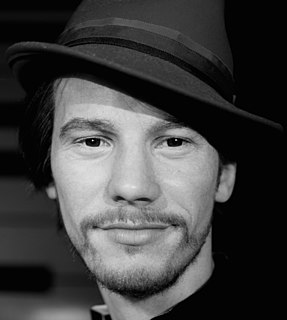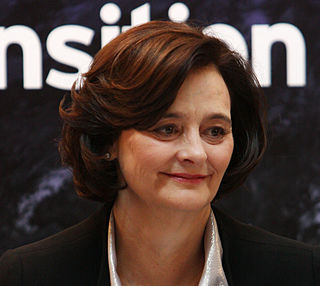A Quote by Thabo Mbeki
I have absolutely no problem with the press criticising policies and the things that we do, the things that we say.
Quote Topics
Related Quotes
The freedom of speech and the freedom of the press have not been granted to the people in order that they may say things which please, and which are based upon accepted thought, but the right to say the things which displease, the right to say the things which convey the new and yet unexpected thoughts, the right to say things, even though they do a wrong.
I'm in this absolutely gorgeous manor house with acres of quite beautiful countryside. I've got trout in the river, an organic vegetable garden, I've got my work 40 yards from my home. I don't mind being criticised, but where are they criticising from? Which hut are they criticising me from, exactly?
When you have an authority figure tell you something that distinguishes you, there's a little bit of a badge of courage or pride point that comes with it, and also some relief that the grownups actually have an answer for the problem. But, at the same time, there's suspicion and defensiveness, like, Why is the way I do things a problem? Maybe the way you do things is the problem. All of these things come with the very notion that you've been described.
I've gotten a lot of young gay kids come up to me and talk to me about how the little things I've said in the press has helped them come out to their parents, or just be open with who they are, and feeling invigorated by that. So that honestly means a lot to me to hear that the things that I say in the press, they do hear, and they see, and it helps them at least to start the conversation.
When people do bad things intentionally, they know they've done them. But it's not to be cared about. That's the problem with the tabloid press; they dramatize these things until there's a state of frenzy. People see frenzy and they go, "What?" Then they clamor toward the frenzy. We all do it. It's a primal, natural response.
The flag is a symbol of our freedom, and burning it absolutely is one of the least patriotic things that a person could possibly do. I say 'one of the least' because I can think of a few things that would actually be less so - and, as a matter of fact, I think that banning flag-burning would absolutely be on that list.
To me, the housewife who puts her teacups unwashed in the sink because her husband won't wash them, is political. Every act is political: the things you do, as well as the things you omit doing; the things you refuse to do; the things you fail to do; the things you say, as well as the things you don't say.












































